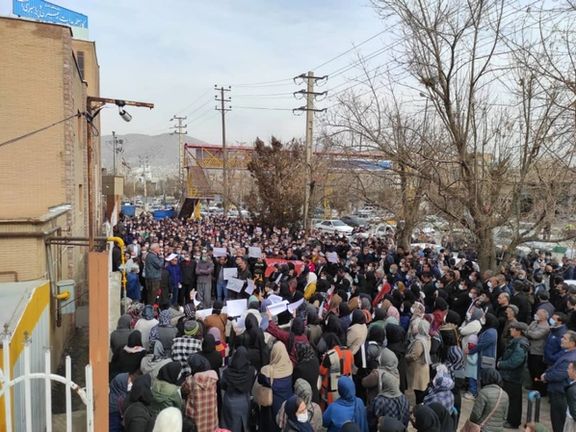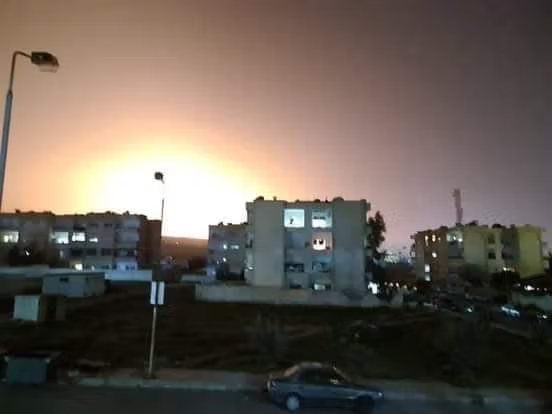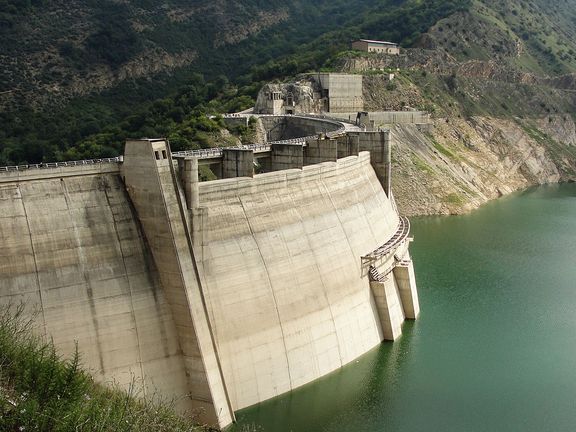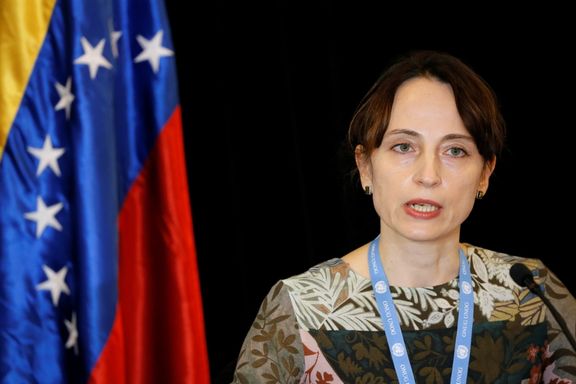Pensioners Hold Protest Rallies In Several Cities Across Iran

Retirees and pensioners of Iran’s Social Security Organization staged protest rallies in several Iranian cities on Sunday, amid worsening economic conditions.

Retirees and pensioners of Iran’s Social Security Organization staged protest rallies in several Iranian cities on Sunday, amid worsening economic conditions.
According to the US-based Human Rights Activists' News Agency (HRANA), the demonstrations were held at provincial offices of the organization in Tabriz, Ahvaz, Mashhad, Kermanshah and some others.
Retirees are protesting against meager pensions, issues in their medical insurance services and poor living conditions in general. The steep fall in the value of Iran’s currency has slashed the purchasing power of retirees and workers.
Similar protest rallies have also been held in various cities in the past few days by various other groups, including ranchers, farmers, miners, and teachers.
On Saturday, ranchers in at least 10 cities gathered at the offices of the Agriculture Ministry, miners from the northern Mazandaran province held a rally in front of Iran’s Mineral Processing and Processing Company in Tehran, and workers of Gachsaran petrochemical company in Kohgiluyeh and Boyer-Ahmad Province staged a strike.
People in several towns of the southwestern Khuzestan province also held demonstrations against the rise in bread prices.
Moreover, the Coordination Council of Iranian Teachers’ Trade Associations issued a statement Sunday saying if teachers detained in the past two weeks are not released, they will hold another nationwide protest.
Several teachers and union activists were arrested before, during and after the latest round of protests across the country on May 1, the international Labor Day.
People from different walks of life, including teachers, nurses, firefighters, and even staff members of the judiciary department and prison guards, have protested or gone on strikes to demand higher salaries.

Following the shutdown of internet connection after popular protests over bread prices in southwestern Iran, a former US official has called on Elon Musk to activate Starlink satellite access for Iranians.
Victoria Coates, who served as senior advisor to the energy secretary in the Trump administration, said in a tweet on Saturday that if Musk can provide internet via satellite constellation Starlink for the Ukrainians, “why can't we blast it into Khuzestan and let these brave Iranians communicate?”
Since Friday morning, internet connection was shut off or significantly slowed down in oil-rich province of Khuzestan, a development usually signaling protests in Iran.
Authorities disrupt the Internet to prevent news of unrest reaching the rest of the country and abroad. It is also done to prevent protesters from galvanizing support in nearby regions.
Operated by Elon Musk’s company SpaceX, Starlink provides internet access coverage to most of the Earth. As Ukraine's internet service has been disrupted by Russia's invasion, Musk made internet available in the country in February.
Following the move by Musk, Iran’s former communication minister Mohammad-Javad Azari-Jahromi warned Iran’s parliament against plans to restrict Internet access, saying that “if you do not provide people with the right service, others will”.

Unknown aircraft Saturday attacked positions of Iran-backed forces in and around Syria’s eastern city of Deir ez-Zor for the second time this week.
The Syrian Observatory for Human Rights (SOHR) said, “Several explosions took place on Saturday in Deir ez-Zor city and its vicinity which are under the control of the regime and Iranian-affiliated militia."
Unidentified warplanes carried out airstrikes against targets in Hawijah Kate and a nearby bridge in the northern part of Deir ez-Zor city, the SOHR said.
Israel frequently targets forces under Iranian command in Syria to prevent the Islamic Republic from accumulating weapons and entrenching itself further in the war-torn country.
Al-Arabiya, however, quoted sources as saying that American drones had launched the attack.
Israel’s military does not usually comment on specific strikes in Syria but has acknowledged that it has conducted hundreds of attacks against Iran-backed groups. It has also claimed several attacks on arms shipments believed to be bound for Hezbollah forces or other Iran-linked groups there.
Last month, Israel allegedly carried out three strikes in Syria.
According to Syrian state media, the latest attack was on April 27, when surface-to-surface missiles were fired from northern Israel at military positions near capital Damascus, killing four Syrian soldiers and injuring three others.
In March, an Israeli attack over the Syrian capital Damascus killed two officers from Iran’s Revolutionary Guard and left some material damage.

Water inflow into Tehran dams has decreased by about 27 percent since the start of the wet season, in Iran which started in November.
Mohammad-Reza Bakhtiari, the managing director of Tehran province Water and Wastewater Company, said on Saturday that input of the five dams around the capital has decreased to over 620 million cubic meters, while the figure was about 855 million cubic meters in the same period last year.
He added that the current volume of water reserve in Amir Kabir, Latian, Lar, Taleghan and Mamlu dams is 97, 60, 67, 232 and 71 million cubic meters, respectively.
According to Bakhtiari, rainfall was also down 31 percent from the beginning of the wet season to 164.1 millimeters, down from 218.9 millimeters in the same period last year.
Head of Iran's Geological Survey and Mineral Explorations Organization, Alireza Shahidi, has recently said that the country is in a 30-year drought cycle, noting that the dry spell started about 10 to 20 years ago and now its effects are more observable.
In 2021, large-scale water protests took place in two important provinces, Khuzestan and Esfahan, with several people killed and hundreds injured by security forces.
As drought persists, more underground water is exploited for irrigation, depleting natural reservoirs formed during thousands of years. However, politicians and experts say that there are no consistent government plans to deal with the water crisis, which can result in mass migration of millions of people in the next ten years.

The man who had confessed to planning assassination on behalf of Iran’s Revolutionary Guards in an audio tape released last week, now claims he was coerced.
In a new video acquired by Iran International Saturday, a man who introduces himself as Mansour Rasouli says he was abducted and coerced to make false confessions. The man's appearance is very similar to a photo released by Israeli media and speaks with the same voice and accent as in his earlier audio recording.
It is possible that the denial video was recorded and released by Iranian intelligence.
The man in the video says he was abducted by a "team of gangsters" who took him to an unknown place. "I didn't know why I was abducted," he says. His abductors threatened to kill him and his family to coerce him to say he was planning to carry out terrorist operations for the Revolutionary Guards (IRGC) in Europe and that he had received $150,000 for the operations.
"They tear-gassed me, tied my hands, blindfolded me, and drew a sack over my head. They brutally forced me into a car and took me to an unknown place," he says and claims his abductors took his mobile phone and may release images from it but does not explain how the images could implicate him in any illegal activities.
However, Iran International will soon release another video from the same man where he confesses to the terror plot.
On April 30, Israeli media, including Channel 12, released an audio recording with the photo of a man introduced as Iranian national Mansour Rasouli, 52, who they claimed the Mossad had interrogated inside Iran. Israeli media did not provide a source for the audio file that they said Mossad operatives posing as Iranian secret service recorded at Rasouli's home in Iran.
The recording surfaced hours after Iran International's report of an alleged Iranian triple assassination plot. Iran International's diplomatic sources had said a member of the IRGC'S Qods Force had been detained in an unnamed European country for assassination plots in Germany, France and Turkey.
In the Israeli's media's audio recording, Rasouli said he was sent to Turkey by the Revolutionary Guards (IRGC) to establish an operational network to assassinate an Israeli diplomat in Istanbul, a Germany-based US general, and a journalist in France. The new denial video at least confirms that reports in Israeli media about agents getting a ‘confession’ from the man were true.
Citing Israeli officials, some Israeli media such as Walla news site have claimed that the incident took place a year ago and the man interrogated had connections to drug-smuggling networks.
Apparently duped by his interrogators that they were from one of Iran's many intelligence agencies, Rasouli said in the recording that accepting to carry out the operation was a mistake that he would never make again.
A statement from Israeli Prime Minister's Office said Monday the Mossad had "foiled" alleged IRGC plots to assassinate a US general in Germany as well as a journalist in France, and an Israeli diplomat in Turkey.
Tehran officials have not commented on the Israeli media's claims. However, in a commentary Monday, Nour News called the reports over the alleged plot "fabrication of the Zionists."
Nour News, a website affiliated to the secretary of Iran's Supreme National Security Council (SNSC), Ali Shamkhani, also accused the BBC's Persian channel of "running the show" and trying to "divert the attention of the public" from "Israeli crimes against Palestinians" and helping the Israeli government overshadow its domestic problems with "crude lies".

By allowing a UN Special Rapporteur on unilateral sanctions to visit the country, Iran seeks to deflect attention from its human rights violations, critics say.
Alena Douhan, the UN Special Rapporteur on the negative impact of the unilateral coercive measures on the enjoyment of human rights, will arrive in Iran Saturday. Douhan, a professor of international law at the Belarussian State University is an expert in international law, sanctions, and human rights law.
During her eleven-day visit, Douhan will hold meetings with various Iranian officials as well as officials of various UN agencies in Tehran, non-governmental organizations, representatives of business and civil society organizations, and academics.
"We denounce the government's instrumentalization of the system of UN human rights monitors in a cynical attempt to deflect attention from its well-documented record of human rights violations," eleven human rights organizations said in a joint statement Friday in reference to the visit.
The signatories of the statement including Abdorrahman Boroumand Center for Human Rights in Iran, All Human Rights for All in Iran, and Article 19, criticized the UN for sending Douhan to Iran although in the past seventeen years the Islamic Republic has denied access to all UN special rapporteurs for human rights.
Iran has not allowed visits to any of the fourteen UN human rights experts who have made requests to monitor the situation of human rights in Iran, including to the special rapporteurs appointed by the UN Human Rights Council.
"The mandate on unilateral coercive measures is unique in that it calls on the mandate-holder to assess primarily – if not exclusively – the responsibility of sanction imposing states for rights violations in the jurisdiction of sanctioned states," the rights organizations' statement said, adding that Iranian authorities are exploiting the visit by the only expert whose mandate is to look at external actors' liability, to blunt scrutiny of their own record of non-cooperation with the UN human rights system.
"By inviting the UN Special Rapporteur, Iran’s ruling clerics, which have been condemned 68 times by the United Nations for brutal and systematic human rights abuses, seek to undermine international sanctions and dodge blame for their incompetency and shortcomings," a commentary in Iran Wire website April 25 said about Iran's alleged agenda.
The role of this rapporteur was created at the UN Human Rights Council by the adoption of a resolution proposed by Iran on behalf of Non-Aligned Movement in 2014.
The resolution stresses that unilateral sanctions, meaning those not approved by the UN Security Council, are contrary to international laws and highlights that on long-term, these measures may result in social problems and raise humanitarian concerns in the targeted states.
Douhan has a track-record of only condemning sanctions imposed on non-democratic countries while virtually remaining silent on violations by countries like Iran, Syria and her native Belarus. The argument that only Security Council sanctions are legal ignore the fact that countries such as Russia and China can easily veto any resolution meant to punish an authoritarian government for massive rights violations.
Since her appointment in March 2020, Douhan has served as the UN rapporteur on US unilateral sanctions against Venezuela (August 2020) and Saudi Arabia's sanctions against Qatar (November 2020). In December 2020, Douhan said US sanctions against Syria's government may inhibit rebuilding of Syria’s civilian infrastructure destroyed by the conflict, and could “violate the human rights of the Syrian people.”